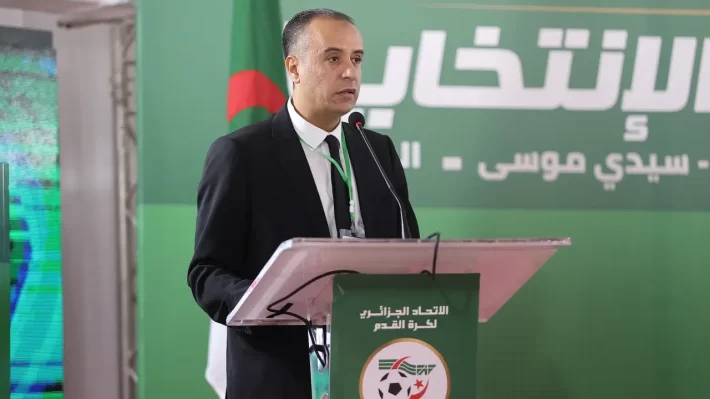Algerian Ligue 1 faces salary cap as part of football reforms

Algerian football is set for a major transformation following the announcement of reforms proposed by Walid Sadi, President of the Algerian Football Federation (FAF) and the recently appointed Minister of Sports.
Among the most debated changes is the introduction of a salary cap for players in Ligue 1 Mobilis, aimed at fostering financial stability and reducing dependency on public funding.
Sadi’s proposal, which is expected to take effect from the 2025-2026 season, includes capping player salaries at €10,000 per month.
Clubs wishing to exceed this limit must demonstrate commercial profitability, signaling a push towards self-sustainability and away from reliance on government subsidies.
The proposed reforms are part of a broader initiative to professionalize Algerian football, which has faced criticism for inconsistent financial management.
These measures are designed to modernize our league and align it with international standards,” Sadi stated during a press briefing.
The salary cap is likely to have wide-ranging implications for player contracts and club operations.
Clubs will need to reassess their financial structures, potentially leading to significant changes in transfer strategies and squad management.
The cap is also expected to apply during the upcoming winter transfer window, accelerating the timeline for adaptation.
Another key aspect of Sadi’s plan involves revising player contracts to ensure greater stability within the league.
By implementing stricter oversight, the FAF aims to address issues related to unregulated spending and create a more sustainable football environment.
While some stakeholders view the reforms as a necessary step towards modernization, the salary cap proposal has sparked mixed reactions.
Critics argue that limiting player salaries could deter top talent from joining Algerian clubs, potentially weakening the league’s competitiveness on the international stage.
Others, however, believe the measures will encourage clubs to invest more in youth development and commercial ventures, ultimately benefiting the league.
The FAF’s initiative reflects a growing trend in global football towards financial regulation, but its success will depend on effective implementation and cooperation from all involved parties.
As Algerian football embarks on this reform path, the upcoming seasons will reveal whether the changes can achieve their intended impact.




